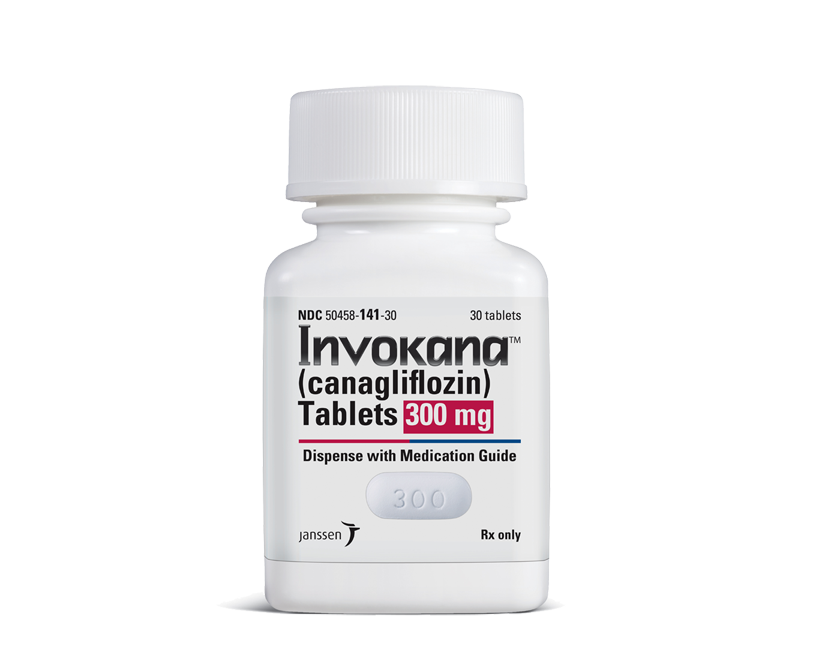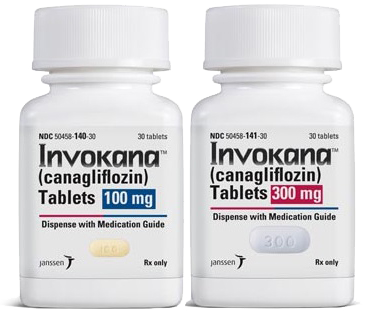

-
The health dangers associated with these SGLT2 inhibitors include Diabetic Ketoacidosis a condition that can cause Diabetic Coma, Heart Disease, Stroke, Kidney Disease or Death.
Don’t wait!
Complete the Free Consultation to see if you’re entitled to financial compensation. Attorney fees are based on damages rewarded.
If you have been adversely effected by any of the side effects of Invokana listed here, follow the simple steps so you can start talking with an experienced Invokana attorney right away.
- Diabetic ketoacidosis (DKA)
- Acidosis
- Heart attack
- Kidney failure
- Wrongful death
- Ketoacidosis
- Diabetic coma
- Stroke
- Cardiovascular problems
About Invokana
Invokana is a SGLT2 (sodium-glucose cotransporter-2) inhibitor used to control Type 2 Diabetes. Invokana, also known as Canagliflozin, helps the kidney eliminate glucose from the bloodstream while lowering the blood sugar levels.
The Dangers
Invokana can cause Diabetic Ketoacidosis. Ketoacidosis is a condition that causes high levels of acid to form within the bloodstream. Victims experiencing Ketoacidosis can have adverse side effects such as kidney failure, heart attack and stroke and even death. Additional information can be found in the FDA report listed below.
Invokana Lawsuits
The FDA sited 20 cases in their report and since then many other victims have filed injury claims against the manufacturer Johnson & Johnson. The victims claim that Johnson & Johnson failed to warn patients and physicians of the increased risks associated with heart and kidney disease, diabetic Ketoacidosis and other cardiovascular issues when taking SGLT2 inhibitors. Victims claim that if they were properly informed they would have taken safer medications that perform the same function. Victims also claim the manufacturer should have informed physicians about any new development on potential side effects so that their patients could be closely monitored and had the knowledge needed to make informal decision to stop or continue taking the drug.

FDA Warning Report ( May 15, 2015)
The U.S. Food and Drug Administration (FDA) is warning that the type 2 diabetes medicines Canagliflozin, dapagliflozin, and empagliflozin may lead to ketoacidosis, a serious condition where the body produces high levels of blood acids called ketones that may require hospitalization. We are continuing to investigate this safety issue and will determine whether changes are needed in the prescribing information for this class of drugs, called sodium-glucose cotransporter-2 (SGLT2) inhibitors.
Patients should pay close attention for any signs of ketoacidosis and seek medical attention immediately if they experience symptoms such as difficulty breathing, nausea, vomiting, abdominal pain, confusion, and unusual fatigue or sleepiness. Do not stop or change your diabetes medicines without first talking to your prescriber. Health care professionals should evaluate for the presence of acidosis, including ketoacidosis, in patients experiencing these signs or symptoms; discontinue SGLT2 inhibitors if acidosis is confirmed; and take appropriate measures to correct the acidosis and monitor sugar levels.
SGLT2 inhibitors are a class of prescription medicines that are FDA-approved for use with diet and exercise to lower blood sugar in adults with type 2 diabetes. When untreated, type 2 diabetes can lead to serious problems, including blindness, nerve and kidney damage, and heart disease. SGLT2 inhibitors lower blood sugar by causing the kidneys to remove sugar from the body through the urine.
These medicines are available as single-ingredient products and also in combination with other diabetes medicines such as metformin (see Table 1 below). The safety and efficacy of SGLT2 inhibitors have not been established in patients with type 1 diabetes, and FDA has not approved them for use in these patients.
A search of the FDA Adverse Event Reporting System (FAERS) database identified 20 cases of acidosis reported as diabetic ketoacidosis (DKA), ketoacidosis, or ketosis in patients treated with SGLT2 inhibitors from March 2013 to June 6, 2014 (see Data Summary). All patients required emergency room visits or hospitalization to treat the ketoacidosis. Since June 2014, we have continued to receive additional FAERS reports for DKA and ketoacidosis in patients treated with SGLT2 inhibitors.
DKA, a subset of ketoacidosis or ketosis in diabetic patients, is a type of acidosis that usually develops when insulin levels are too low or during prolonged fasting. DKA most commonly occurs in patients with type 1 diabetes and is usually accompanied by high blood sugar levels. The FAERS cases were not typical for DKA because most of the patients had type 2 diabetes and their blood sugar levels, when reported, were only slightly increased compared to typical cases of DKA. Factors identified in some reports as having potentially triggered the ketoacidosis included major illness, reduced food and fluid intake, and reduced insulin dose.

